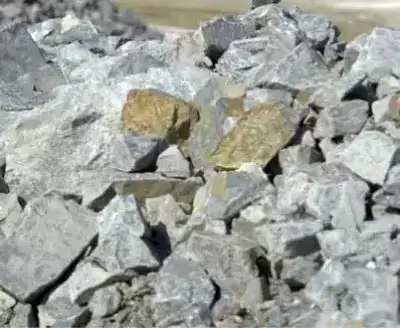
According to a statement obtained by Xinhua on Thursday, Albemarle Corporation took actions to "proactively respond to ongoing industry headwinds, particularly in the lithium value chain, so it can preserve long-term competitiveness."
Kent Masters, the company's chairman and chief executive officer, revealed that the long-term growth potential for their end markets remained strong.
"Given the dynamics of the global markets we serve, we must be able to pivot and pace as necessary to maintain our leading position," he added.
For the operation of the Kemerton lithium hydroxide conversion plant, the company decided to stop construction activities at Train 3, idle production at Train 2 and place the unit in care and maintenance, as well as focus manufacturing efforts on the continued ramp and qualification of Train 1.
"Today's decisions regarding Kemerton are entirely due to market conditions and the commercial realities that lithium prices will stay lower for longer. This has nothing to do with State and Federal government policies," said a spokesperson from Albemarle's Australia Branch.
Albemarle pledged to still employ around 460 people at the Kemerton plant and continue investment into Western Australia's economic growth.
The two-train lithium hydroxide processing plant at Kemerton is located near Bunbury in Western Australia's southwest region, manufacturing value-added lithium products.
In June last year, the Australian Trade and Investment Commission confirmed a 1-billion-Australian-dollar (about 652.7 million U.S. dollars) funding by Albemarle to add two new processing trains to the Kemerton site.
"This investment, combined with the existing two trains at Kemerton owned under Albemarle's joint venture with Mineral Resources, represents the biggest investment by any company in downstream processing of lithium in Australia. It will make Albemarle the largest producer of lithium in Australia," said the commission, Xinhua news agency reported.
It was also estimated that once fully operational, the two new trains would double the plant's forecast annual output by 50,000 metric tonnes to 100,000 metric tonnes per annum.
"This is enough lithium hydroxide to manufacture batteries for approximately 2.4 million electric vehicles. Construction is set to begin immediately, with the first train operational by 2026," the commission added.
As one of Australia's largest lithium producers, Albemarle also holds strategic investments in lithium mining, such as Wodgina Lithium Mine joint venture in the Pilbara, and a shareholding in the Greenbushes lithium mine.
In response to Albemarle's decision to downgrade operations at Kemerton, Australian Minister for Resources Madeleine King commented that it underlines the continuing volatility of international critical minerals markets.
"Market concentration and volatility in demand have caused extreme price changes in lithium markets, including an 80 percent fall in lithium hydroxide prices over the last 12 months," said King.
The minister has been advised that 300 Albemarle employees would be directly affected by the scaled-back activities.
As part of its Future Made in Australia agenda, the federal government unveiled a Critical Minerals Production Tax Incentive in May, valued at 17.6 billion Australian dollars (about 11.4 billion U.S. dollars) over 14 years to boost the processing and value-adding of critical minerals onshore.
King saw the production tax credits as an aid to build Australia's sovereign capability, increase local resilience, add additional value to the country's commodities, and grow jobs.
"Current conditions in lithium markets highlight the importance of policy support for Australia's critical minerals sector to help address distortions in global markets and secure opportunities for Australia to be a key supplier of high quality refined critical minerals," she said.
Disclaimer: The copyright of this article belongs to the original author. Reposting this article is solely for the purpose of information dissemination and does not constitute any investment advice. If there is any infringement, please contact us immediately. We will make corrections or deletions as necessary. Thank you.





